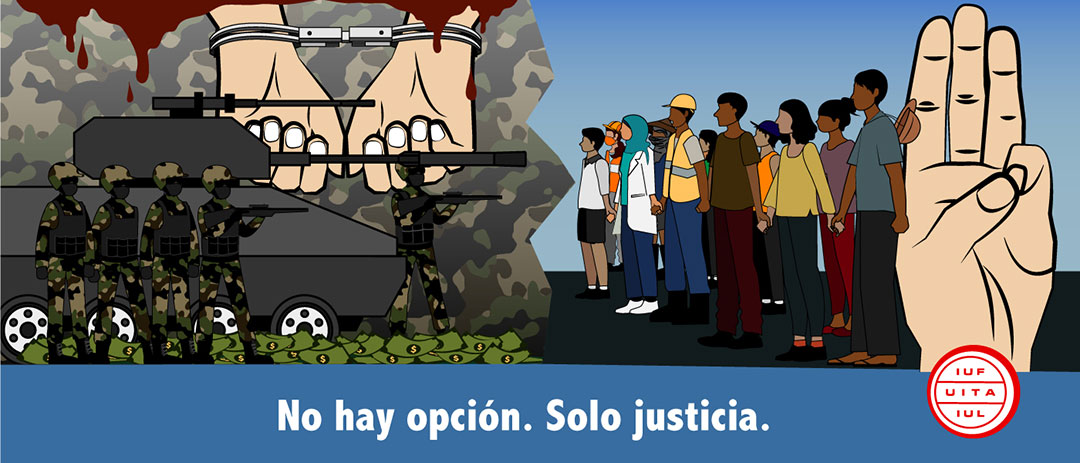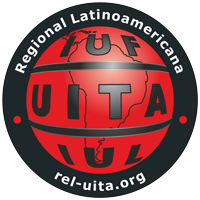IUF campaign in support of the people of Myanmar
Human rights organizations estimate that since the coup d’état some 2,000 people have been killed by military forces and another 15,000 have been arrested. The Burmese dictatorship uses repressive tactics that are well known in Latin America.
Gerardo Iglesias
21 | 09 | 2022

The Myanmar army has wielded enormous influence in both military and civilian governments for decades. The country has seen three coups since gaining its independence from the United Kingdom in 1948.
The first army insurrection took place in 1962 and the second coup occurred in 1987, with the two resulting in the establishment of a single-party military dictatorship that spanned half a century.
On February 1, 2021, following a decade of incipient democratic rule, a third coup was staged. The military justified their action as a means “necessary to pave the road to a genuine, multi-party democracy,” employing similar arguments so often heard in Latin America from the mouths of coupist officers.
In addition to the number of people killed or arrested, there are 320,000 internally displaced by violence, who have joined the 340,000 already displaced in the country as a result of previous conflicts, according to the United Nations Office for the Coordination of Humanitarian Affairs.
Repressive forces have unleashed a violence that has no limits, with evidence in several places revealing that they are deploying “scorched earth” military tactics such as those used by the Guatemalan army to massacre civilians in the 1980s and 1990s.
The attacks against civilians committed between September and December of last year exceeded in casualties the figures “recorded in both Syria and Afghanistan. In the Burmese case, there were 2,500; while in the same period Syria and Afghanistan totaled 2,324 combined.” (El País de Madrid, February 1, 2022).
As with the 2009 coup d’état in Honduras, the Myanmar military was surprised by an element that was not on its radar: popular resistance.
From Latin America, we militantly and fervently join the IUF campaign to bring an end to the Burmese military dictatorship, reinstate democracy, and guarantee full respect for human rights.
It would be a gross mistake to see Myanmar as a very distant place and what happens there as of no concern to us, because human rights violations know no geographic borders.
Tomorrow we could see military forces in this region reproducing the same social carnage. Or to be more precise, we may see them repeating such carnage.
Fascism must be defeated in all its forms, whenever and wherever it rears its ugly head.
